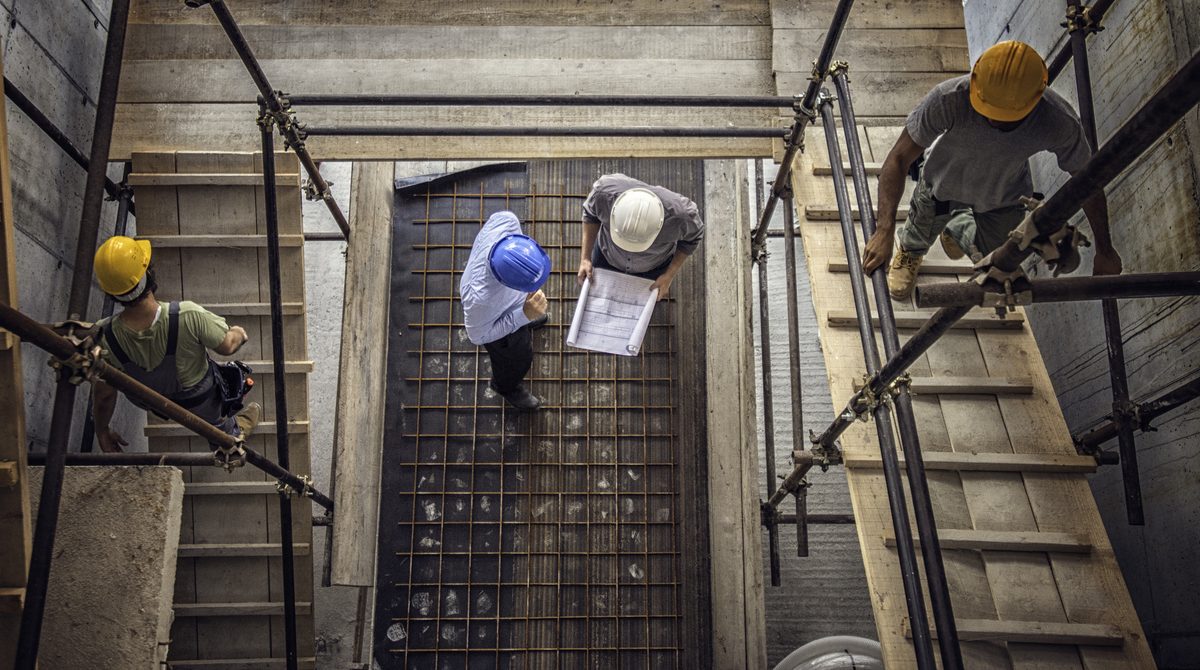
12 Essential Tips for Managing a New Commercial Build
As your business grows, your office space must grow along with it. That often means renovating an existing building, adding on to your facilities, or building an entirely new structure. Here are are some tips for new commercial builds to help you make the most out of your renovation or new construction.
Adhering to these tips might save you thousands on your finished building, making the entire process smoother and less stressful on your entire staff.
1. Consider All Your Choices
Once you determine whether to add to or renovate your existing building or build an entirely new facility, it’s time to find a general contractor who can guide you through the rest of the process. Unless you have extensive experience in the commercial building industry, it’s always best to find a general contractor with established connections. They’ll be responsible for hiring and managing the teams that will oversee the various parts of the building process, including brick masons, electricians, plumbers, HVAC specialists, drywall hangers, or whatever other professionals you may need. This process is time-consuming and cumbersome if you try to go it alone, and you won’t likely get nearly the prices an established contractor can secure for you.
2. Take a Look at Your Revenue & Expense Projections
At this point, you need to project what your business revenue and expenses should be during the construction process, so that you can plan for what you’re able to invest in the project. From there, you’ll know what capital you can sink in yourself and what you need in terms of financing. With reliable projections, you can also determine what kinds of payment terms you can afford so that you don’t take on more debt than you can reasonably pay off in a reasonable length of time.
3. Take Care of the Legalities
Aside from the federal laws and laws specific to each province, every municipality has its own requirements in terms of permits, zoning, etc. Again, choosing a good general contractor who is familiar with the specific area where you’re building or renovating can help guide you through choosing property in the right zone and obtaining all relevant permits to begin the construction process. Likely, there will be inspections along the way, and construction is sometimes halted until an inspector can visit the property. Be sure to plan for these types of delays in your building plans, as well as any potential snags, such as an inspector demanding additional materials or safety measures.
4. Don’t Try to Save Money by Leaving Out a Professional Architect
You may think that a simple floor plan for a doctor’s office or dental practice is sufficient. But a professional architect or designer is essential for making efficient use of the space, and for assuring that the building can easily be equipped with HVAC units, plumbing, electrical outlets, etc. This is particularly true if you’re using specialized medical equipment with certain electrical or connectivity requirements. An architect can also help you plan for any extra space you’re adding for the purpose of leasing out.
5. Consider How Overseeing the Build Might Affect Your Ordinary Business Operations
It’s quite common for businesses to underestimate the time it takes to communicate with your contractor and make countless decisions along the way. Will you be able to take time away from operations and your own customers to answer questions, make critical decisions, and negotiate with your contractor during the build? Remember, his/her time is your money, too, and delaying answers to their important questions runs the project longer in both time and money. Many businesses designate a liaison to work with the contractor to assure minimal disruption to operations and customer service.
6. Seek Professional Advice Regarding Costing
Costing a commercial build means managing the price per square feet, as well as contract inclusions and exclusions. You need to know before the build starts what the “completed contract” entails. Does it include paving your parking lot? Hooking up to utilities like water? This part is essential for securing financing, especially if liquid funds are tight during the build.
7. Build Some Breathing Room into Your Plans
When developing your building and costing plans, don’t keep it too tight. Remember, weather systems, market fluctuations, and other factors beyond your control can considerably change the time and cost of a project during the build. A renovation project can also uncover some problems that couldn’t be seen beforehand, such as mold and infrastructural problems. Add 5 to 10 percent to the budget for contingencies.
8. Secure Financing Before Anything Else Gets Done
Begin with your existing financers. If you have built a good rapport with a bank or other lending institution, they are quite likely to fund you again. Don’t forget other, less common, means for financing business ventures like building, including venture capitalists and crowdsourcing. These are goldmines when you reach outside the limits of lending institutions, and they are more willing to advance funds for an existing business like yours than for an untested startup.
9. Lean on Your Contractor
If you’ve selected the right contractor, (s)he can guide you through many of these steps. There’s no use reinventing the wheel; if the contractor has good experience with a particular architect or lender or other professional, definitely lean on that experience and take advantage of those existing relationships. Your contractor can often guide you to other professionals, as well, such as a real estate agent who deals in commercial properties and knows local zoning laws. The contractor is also your go-to person for learning about the permitting and inspection processes.
10. Beware of Making Changes That Drive Up Cost and Take More Time
Another typical mistake when contracting for a new business facility is to lowball on cost estimates at the beginning and continually add to the project’s scope over time. For instance, when you first budget for a project, you may decline extras like better light fixtures, architectural niceties, or higher-quality cabinetry. As you change these items or ask for additional features or costs, all of this bloats your bottom line. Don’t hold your contractor to a price if the scope and scale of the project changes significantly during the build. It’s better to over-indulge at the onset and cut costs where possible during the build than to under budget initially and expand the project along the way, after most of the financing is already in place and there isn’t much wiggle room.
11. Understand How the Building Team is Structured
Typically, you work with the designer and/or architect, as well as working directly with your general contractor. The general contractor hires, oversees, and is responsible for any subcontractors (s)he hires to complete various parts of the job, such as electricians, roofers, painters, plumbers, and HVAC specialists. There will likely be two separate groups working under your general contractor, the ground-up crew, responsible for the foundations and outer structure of the building, and the finishing crew, who does the final touches, like drywall, painting, installing light fixtures and cabinetry, etc. You should only be working with your general contractor. Allow him/her to do their job regarding the subcontractors they select and employ. In other words, don’t go ask the electrician for upgraded lighting. Talk to your contractor and work with him on the budget and other considerations. Then they will work with the subcontractor to carry out your wishes. This avoids confusion, mistakes, and misunderstandings.
12. Become a Master of Conflict Resolution
Understanding this hierarchy helps you with this final tip: conflict resolution. In any project as massive as a commercial renovation or new build, there are bound to be conflicts. The architect said this, but the contractor thought that, or one of the subcontractors is working with older versions of the plans … it happens. Just manage your contractors with the same finesse you handle your other employees, and the build will be an inevitable success.
Contact us at Anthem Construction today to get started working with the right general contractor for your business renovation or new build.
Recent Posts

Want to Reduce Noise in the Office? Improve Your Acoustics

6 Of The Most Common Office Design Mistakes You’ll Want To Avoid

The Benefits and Drawbacks of Open Ceilings

3 MORE Upcoming Interior Design Concepts for the Office Space

Tips From a Commercial Contractor: The 5 Most Common Complaints About Office Design









